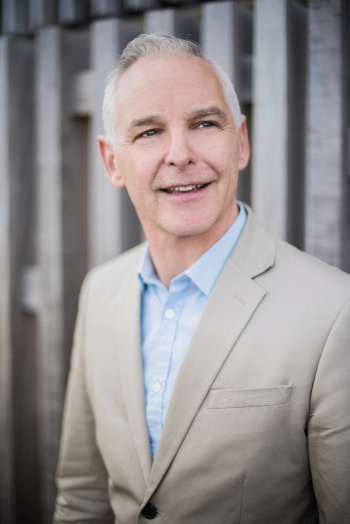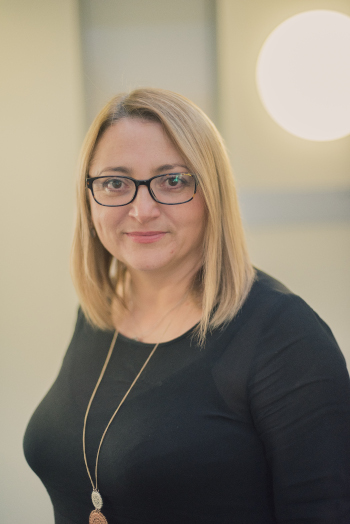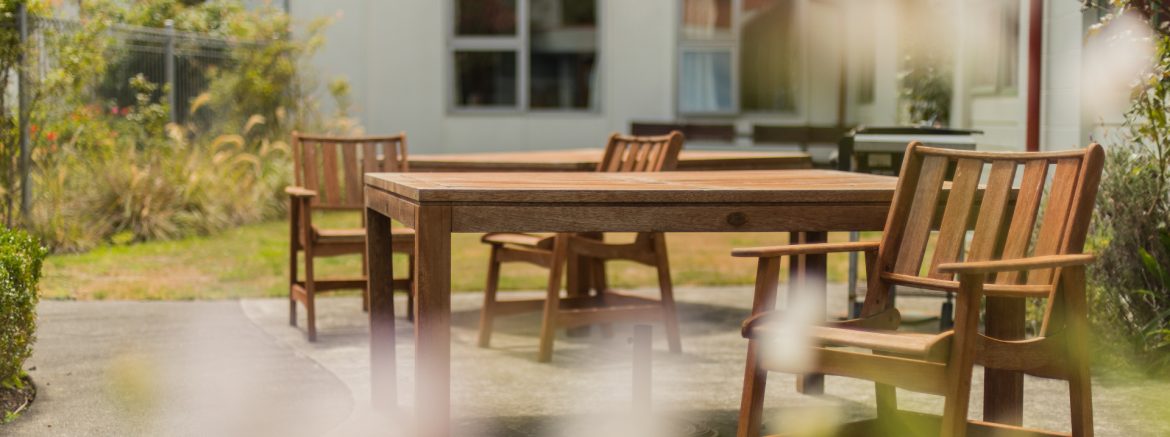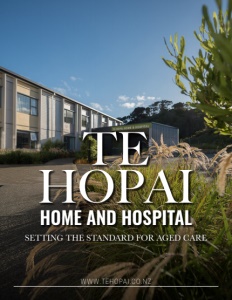Te Hopai Home and Hospital
Setting the standard for aged care
Business View Oceania interviews Pakize Sari, GM, and Dave Stewart, Managing Director, of Te Hopai Home and Hospital, for our focus on Aged Care in New Zealand
Located in a relaxed, park-like setting in Wellington, residents of Te Hopai Home and Hospital enjoy living in a modern, well-equipped, trust-owned facility that sets the standards for rest home, dementia and continuing hospital care. Established in 1888, the Te Hopai Trust Group remains the oldest Charitable Trust solely dedicated to care of the elderly in New Zealand. Following a grant of land by the Colonial Secretary, the first Te Hopai home was built with funds subscribed from prominent Wellington citizens and opened in 1889. It was replaced by a new home in 1976 and in 1993 Te Hopai Trust built the Kowhai Wing, a 10-bed secure unit, to care for residents with memory problems.
Te Hopai Hospital was built and officially opened in July 1996 as a 34-bed facility featuring medical convenience while providing a homely, safe and warm environment for short and longer term residents. In 2001, a major redevelopment of Te Hopai Home was started. This saw the opening of a new two storey wing, followed by a staged rebuilding of the old home. The outcome was a modern multipurpose building with each room having an ensuite bathroom.

Managing Director, Dave Stewart
Dave Stewart, Te Hopai Managing Director, reports, “Through the years, we’ve gone from being a very old-style facility where we had rations and all sorts of rules and regulations to being a whole new residential care facility now. At this point we have 151 beds – a mixture of rest home, hospital care and dementia care. Most recently, in 2017 we opened a new 46-bed hospital. Prior to that in 2011/12 we opened up a brand new dementia unit, and we’re constantly looking to see what we should be doing to meet the market. Of course, we have an aging population with a different level of acuity and much difference needs. So as each year progresses, we have to look at what’s happening worldwide, what are best practices, and what we can do to continually improve our services.”
The Te Hopai Trust Board keeps well informed on political changes in the aged care market as well as the increasing needs of residents and their families. With that in mind, last year they implemented a new patient management system – a major investment for a private facility. They are now looking at having tablets available outside of rooms, so families have accessibility, and patients can access the internet and Skype with family members to keep that engagement with their own community. Stewart admits there are challenges: “It’s little things; it’s large things like buildings; it’s technology – it’s a constant juggling exercise to keep ahead of the game. But our occupancy is typically running at 96 to 98 percent, whereas other facilities in the area are in the low 80s. Because we’re a very popular facility, we do have a waiting list and when rooms come available they get snapped up pretty quickly.”
Mukesh Patel of Quantum Computers Ltd supplies computing support services to Te Hopai Home and Hospital. According to Te Hopai General Manager, Pakize Sari, “Mukesh is very responsive to the needs of our facility. He gives us good advice and service in all situations and follows through on agreed work timelines. The strength of Mukesh is in his knowledge and, most importantly, his availability on site and remotely; whatever is appropriate to respond to the needs of our staff and in effecting the annual maintenance plan. When he is not personally available, he arranges for cover for us from within Quantum Computers and they in turn have been very responsive. We have been working with Quantum Computers for 10 years and in that time Mukesh has brought us from a basic computer system (with only five non-networked computers) to an integrated system as well as aged care specific systems such as the resident management system and the medication management system. We strongly recommend Mukesh and Quantum Computers to other organisations/clients.”
Te Hopai was built on a small hilly piece of land right next to Wellington Hospital on two different building platforms. On one part of the site is a fully organised kitchen that caters for all the meals. There are a number of large and small lounges accessible throughout the facilities, where residents participate in activities such as arts and crafts and poetry readings. And wonderful outdoor spaces and beautiful garden areas that enhance the welcoming homely atmosphere. Being so close to the hospital has its benefits and drawbacks. According to Stewart, “Sometimes we’re incredibly convenient for the hospital to give us all of their incredibly acute cases. One of the dangers of being really successful is we are the go-to organisation for all the tough ones. That can be very challenging for our staff. But it is very helpful and it means we are always able to access the hospital facilities very quickly. Although there is a hospice across the road from us, the reality is that more people come to end their days in our facility than the hospice.”

GM, Pakize Sari
Te Hopai caregivers are now paid according to their qualifications in level three and level four. And the facility is one of the highest level four qualified organisations in Wellington and probably outside the region. Staff members take great pride in their education and they are encouraged to take level three and level four dementia-specific training. As Sari explains, “We are using Altura online staff training based on the new Australian standards, so we’re quite excited about that. Staff can log onto online training where they complete and are reviewed by our Education Coordinator. Also we have target-based training. With that, care managers and registered nurses observe the caregivers and then give reports to our Education Coordinator about the needs of the individual staff. If someone needs manual handling training, or infection control training, that additional training is either provided one-to-one or online.”
Te Hopai employees about 150 staff, including caregivers, registered nurses, nurse practitioners, medical staff and laundry staff. In addition to two registered nurses with a PhD in nursing, three with post-graduate qualifications, and one doing post-grad studies – and nurses are supported to achieve those qualifications so they are up to date on the latest methods of care. As a result, the facility is able to provide residents with continued care from rest home to dementia and hospital. It is also a very inclusive organisation in terms of staffing and meeting residents’ needs from different cultural backgrounds. A particularly timely and important focus is on how the rainbow community is aging and how aged care is meeting that need.
Stewart notes, “The levels of care have changed so much in the last few years. Whereas in the past we may have had someone enter rest home care in their 60s, now they’re in their 80s. And the people coming into the hospital are often palliative care. The tenure or longevity of our residents has dropped alarmingly. And one of the biggest challenges is that we initiate a care plan for a resident coming into the facility and then within sometimes days or weeks they’ve passed away. It’s an incredibly stressful environment for the staff, and another level of training we’ve had to provide.”
Sari adds, “We also have younger residents. Last year we had three under the age of 50 in palliative care, they come and live with us and die within six to seven weeks. It was very disturbing for staff having young children crying in the room, quite a different scene than with older people. One of our funders has given very generously to individual and group counselling for our staff members, as needed. We are very fortunate to have three donors – Thomas George Macarthy Trust, Sutherland Self Help Trust and Public Trust NZ – that are invaluable to the ongoing success of the Te Hopai facility.”
On the agenda for the future, Stewart stresses that dementia level care is “very close to our hearts. In Wellington, we don’t have enough dementia beds – here we have 16 and it’s our intention to build additional small dementia units on the greenfield here. With 5 to 6 beds in three units, so people with similar interests and cultural backgrounds can enjoy a conversation in a familiar environment. There are lots of good models of dementia-specific care in Australia and Europe, so we’re thinking around doing those type of much smaller units.”
In essence, Te Hopai is succeeding well as an agile charitable trust competing against multinationals. Its tagline “Setting the standard for aged care” is not just an advertising slogan, it’s something the whole team passionately believes in. “It’s about the constant renewal and focus on what more we could be doing,” says Stewart. “Ultimately, we’re a medical facility but in a caring home environment; having a slightly higher ratio of staff so our carers can spend the time with each resident and care for them as part of the family. That’s what we’re most proud of.”
AT A GLANCE
Te Hopai Home and Hospital
What: Modern aged care facility for rest home, dementia and continuing hospital care
Where: Wellington, New Zealand
Website: www.tehopai.co.nz
PREFERRED VENDORS
MOA – moabenchmarking.co.nz
Quantum Computers ltd – www.qcomp.co.nz





